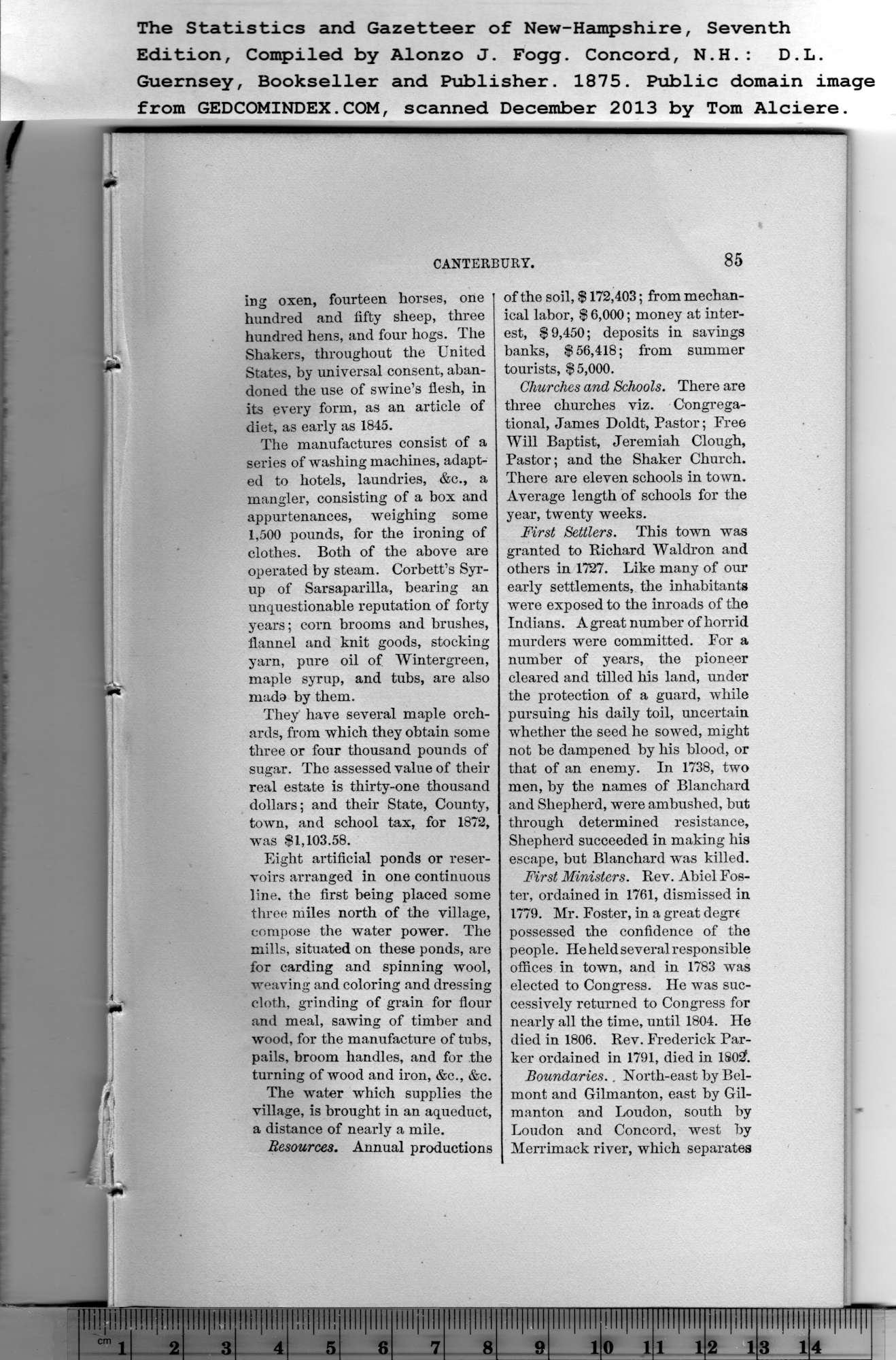|
ing oxen, fourteen horses, one
hundred and fifty sheep, three
hundred hens, and four hogs. The
Shakers, throughout the United
States, by universal consent, aban-
doned the use of swine’s flesh, in
its every form, as an article of
diet, as early as 1845.
The manufactures consist of a
series of washing machines, adapt-
ed to hotels, laundries, &c., a
mangier, consisting of a box and
appurtenances, weighing some
1,500 pounds, for the ironing of
clothes. Both of the above are
operated by steam. Corbett’s Syr-
up of Sarsaparilla, bearing an
unquestionable reputation of forty
years; com brooms and brushes,
flannel and knit goods, stocking
yarn, pure oil of Wintergreen,
maple syrup, and tubs, are also
mada by them.
They have several maple orch-
ards, from which they obtain some
three or four thousand pounds of
sugar. The assessed value of their
real estate is thirty-one thousand
dollars; and their State, County,
town, and school tax, for 1872,
was $1,103.58.
Eight artificial ponds or reser-
voirs an'anged in one continuous
line, the first being placed some
three miles north of the village,
compose the water power. The
mills, situated on these ponds, are
for carding and spinning wool,
weaving and coloring and dressing
cloth, grinding of grain for flour
and meal, sawing of timber and
wood, for the manufacture of tubs,
pails, broom handles, and for the
turning of wood and iron, &c., &c.
The water which supplies the
village, is brought in an aqueduct,
a distance of nearly a mile. |
Resources. Annual productions
of the soil, $ 172,403; from mechan-
ical labor, $ 6,000; money at inter-
est, $9,450; deposits in savings
banks, $56,418; from summer
tourists, $5,000.
Churches and Schools. There are
three churches viz. Congrega-
tional, James Doldt, Pastor; Free
Will Baptist, Jeremiah Clough,
Pastor; and the Shaker Church.
There are eleven schools in town.
Average length of schools for the
year, twenty weeks.
First Settlers. This town was
granted to Richard Waldron and
others in 1727. Like many of our
early settlements, the inhabitants
were exposed to the inroads of the
Indians. A great number of horrid
murders were committed. For a
number of years, the pioneer
cleared and tilled his land, under
the protection of a guard, while
pursuing his daily toil, uncertain
whether the seed he sowed, might
not be dampened by his blood, or
that of an enemy. In 1738, two
men, by the names of Blanchard
and Shepherd, were ambushed, but
through determined resistance,
Shepherd succeeded in making his
escape, but Blanchard was killed.
First Ministers. Rev. Abiel Fos-
ter, ordained in 1761, dismissed in
1779. Mr. Foster, in a great degre
possessed the confidence of the
people. He held several responsible
offices in town, and in 1783 was
elected to Congress. He was suc-
cessively returned to Congress for
nearly all the time, until 1804. He
died in 1806. Rev. Frederick Par-
ker ordained in 1791, died in 18021.
Boundaries. North-east by Bel-
mont and Gilmanton, east by Gil-
manton and Loudon, south by
Loudon and Concord, west by
Merrimack river, which separates |
